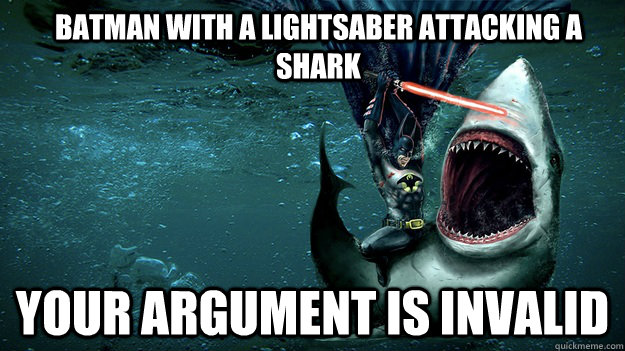Stop: So gotta few things that need to be said real quick.
so gotta few things that need to be said real quick.
We get a lot of reports from this thread. A lot of it is just a series of people yelling at each other over arguments that have been rehashed hundreds of times since the end of the recent Volume. And I get that the last Volume - and RWBY in general, really - has some controversial moments that people will want to discuss, argue about, debate, etc.
That's fine. We're not going to stop people from doing that, because that's literally what the point of the thread is. However, there's just a point where it gets to be a bit too much, and arguments about whether or not Ironwood was morally justified in his actions in the recent Volume, or if RWBY and her team were in the right for withholding information from Ironwood out of distrust, or whatever flavor of argument of the day descend into insulting other posters, expressing a demeaning attitude towards other's opinions, and just being overall unpleasant. That tends to happen a lot in this thread. We want it to stop happening in this thread.
So! As of now the thread is in a higher state of moderation. What that means is that any future infractions will result in a weeklong boot from the thread, and repeated offenders will likely be permanently removed. So please, everyone endeavor to actually respect the other's arguments, and even if you strongly disagree with them please stay civil and mindful when it comes to responding to others.
In addition, users should refrain from talking about off-site users in the thread. Bear in mind that this does not mean that you cannot continue to post tumblr posts, for example, that add onto the discussion in the thread, with the caveat that it's related to RWBY of course. But any objections to offsite users in the thread should be handled via PM, or they'll be treated as thread violations and infracted as such.
We get a lot of reports from this thread. A lot of it is just a series of people yelling at each other over arguments that have been rehashed hundreds of times since the end of the recent Volume. And I get that the last Volume - and RWBY in general, really - has some controversial moments that people will want to discuss, argue about, debate, etc.
That's fine. We're not going to stop people from doing that, because that's literally what the point of the thread is. However, there's just a point where it gets to be a bit too much, and arguments about whether or not Ironwood was morally justified in his actions in the recent Volume, or if RWBY and her team were in the right for withholding information from Ironwood out of distrust, or whatever flavor of argument of the day descend into insulting other posters, expressing a demeaning attitude towards other's opinions, and just being overall unpleasant. That tends to happen a lot in this thread. We want it to stop happening in this thread.
So! As of now the thread is in a higher state of moderation. What that means is that any future infractions will result in a weeklong boot from the thread, and repeated offenders will likely be permanently removed. So please, everyone endeavor to actually respect the other's arguments, and even if you strongly disagree with them please stay civil and mindful when it comes to responding to others.
In addition, users should refrain from talking about off-site users in the thread. Bear in mind that this does not mean that you cannot continue to post tumblr posts, for example, that add onto the discussion in the thread, with the caveat that it's related to RWBY of course. But any objections to offsite users in the thread should be handled via PM, or they'll be treated as thread violations and infracted as such.
Last edited:



